Life inside Essex’s ‘prison-like’ asylum seeker site Wethersfield
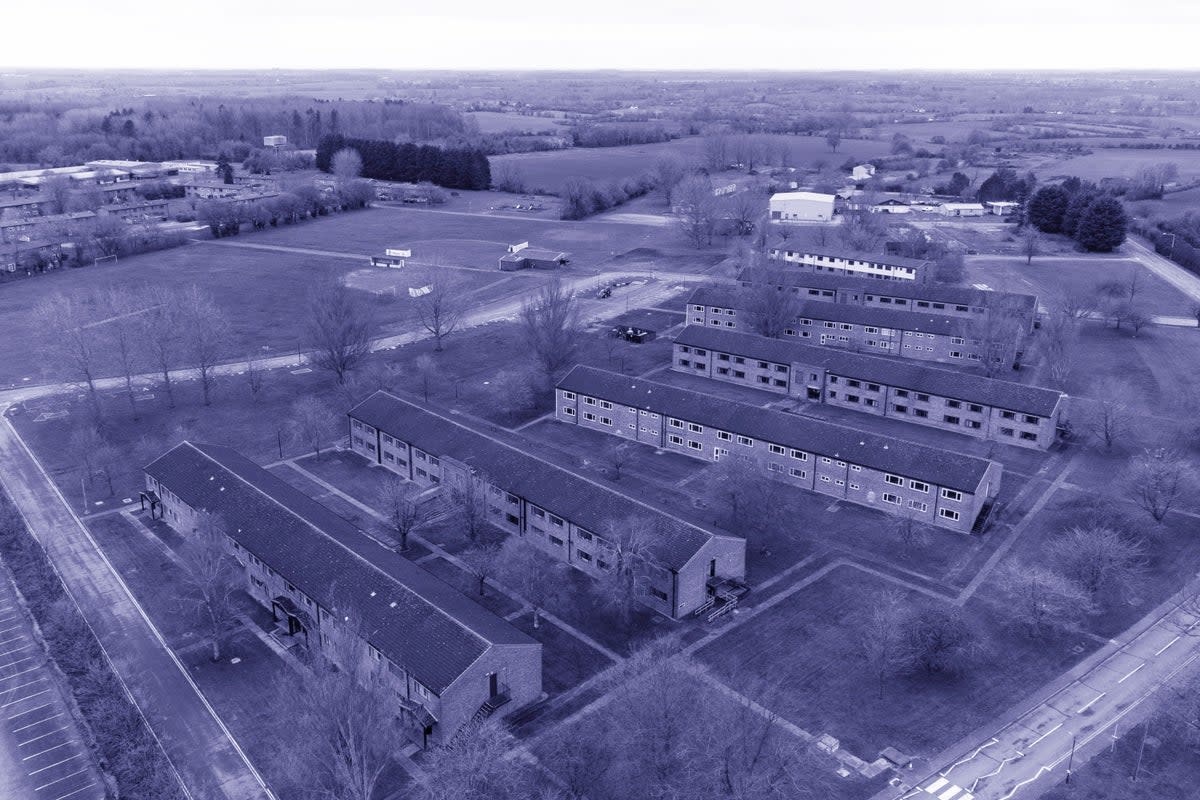
For Amir, a refugee living in Home Office-funded accommodation, seeing people attempt suicide has become almost routine. He has been in Wethersfield, a former RAF base being used to house asylum seekers, for four months. In that time, he estimated he has seen 10 people try to take their own lives.
“Some have tried to jump off the buildings, others try to hang themselves in the rooms, one tried to hurt himself in the kitchen, and one took too many pills,” he told The Independent in a cafe in Braintree – a town that’s a short bus ride from the Essex site.
He described witnessing one man, who had been in an Iranian prison for several years, committing a horrifying act of self-harm and then going on hunger strike. The man was transferred out of Wethersfield after four days, he said.
Amir is one of around 580 migrants who are being housed at the 80-year-old site, where asylum seekers can be held for 6-9 months. Legal action is currently being brought against the government by charities who say the “prison-like” camp is a “de facto detention centre”.
Failures in vetting have seen vulnerable people sent to the site, with hundreds getting transferred out after the Home Office admitted it was unsuitable. However, charities say the site is so bad that no one should be housed there.
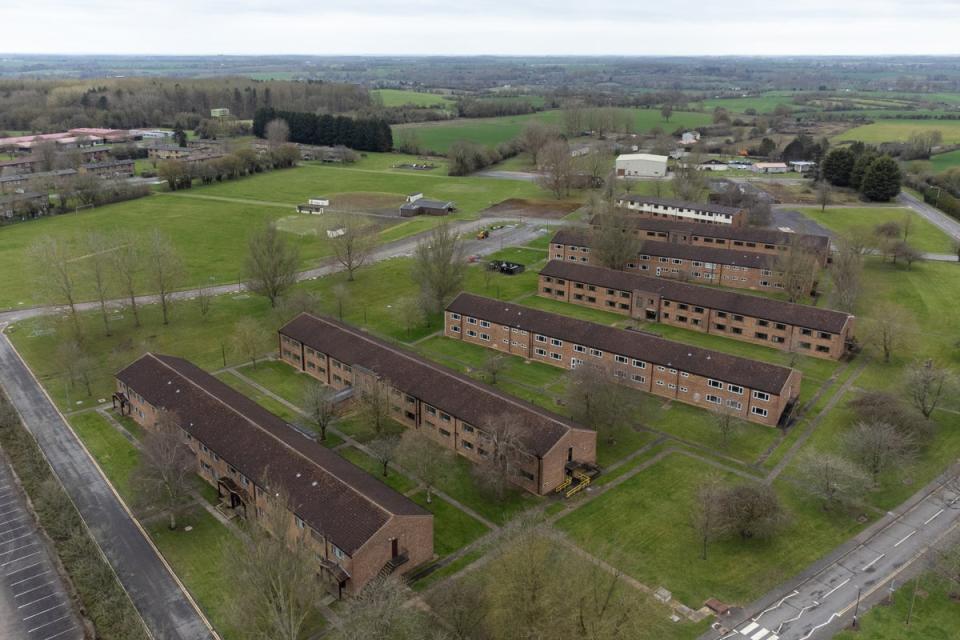
Wethersfield consists of two main accommodation blocks, one that sleeps three people to a room and the other six to a room. Residents have some facilities, like a small gym, televisions in communal areas and a football field, but many struggle to deal with days of boredom at the site.
The former inspector of borders and immigration, David Neal, wrote to ministers in February, saying a lack of “purposeful” activity was “likely to have a deleterious impact on residents’ mental health” and a “heightened risk of disorder”.
Another asylum seeker, who had lived in Wethersfield for seven months, told The Independent that fights were common, especially in the dining room over food portions. The kitchen staff are now wearing cameras to deal with flare-ups and arguments.
Describing the struggle to stay positive, Amir said: “Some people don’t talk, they don’t eat, they don’t sleep. You close yourself up, you feel empty.”
He said the “prison-like” site causes people’s mental health to deteriorate, which can result in self-harm and suicidal ideation.
A friend at the site recently tried to hang himself near the football area and Amir, whose name has been changed to protect his identity, supported him on the trip to hospital. He said: “He didn’t eat for 10 days but nobody cared. He told them he didn’t feel good but no one helped him. I spoke to him in the hospital and I asked him why he had done it. He told me ‘no one cared about me’. In that moment he felt his life was worthless and wanted to end it.”
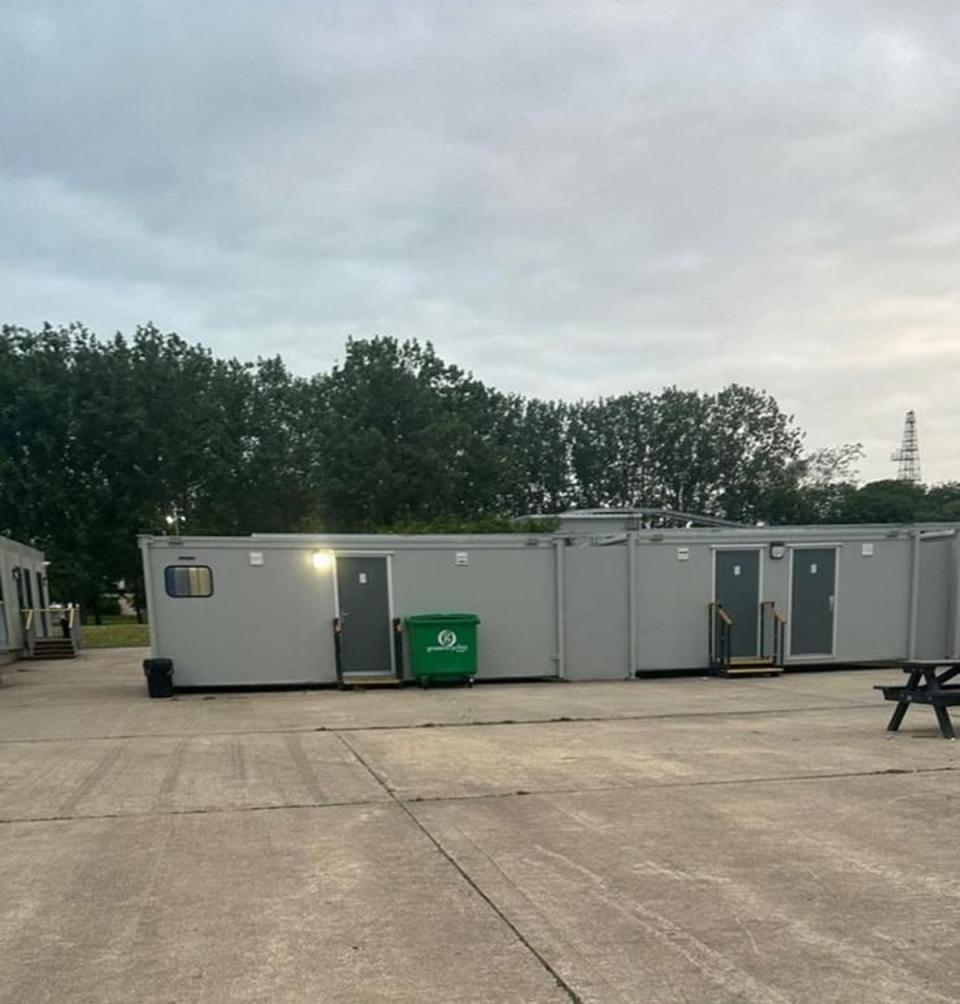
Although a GP is on site from Monday to Friday, there are no out-of-hours medical staff and no mental health specialist. Infectious diseases, such as scabies, are common, with one block used for isolating patients. However, the biggest problem is mental health.
“A lot of people are going crazy”, Amir said. “It is mental torture. If anyone lived there for a week they would know how we feel.”
Asylum seekers are allowed to leave the base for a walk but they have to sign out and buses run infrequently to nearby towns such as Braintree. Charities say there have been many cases of asylum seekers forced to sleep rough in the surrounding towns because they have missed the bus back.
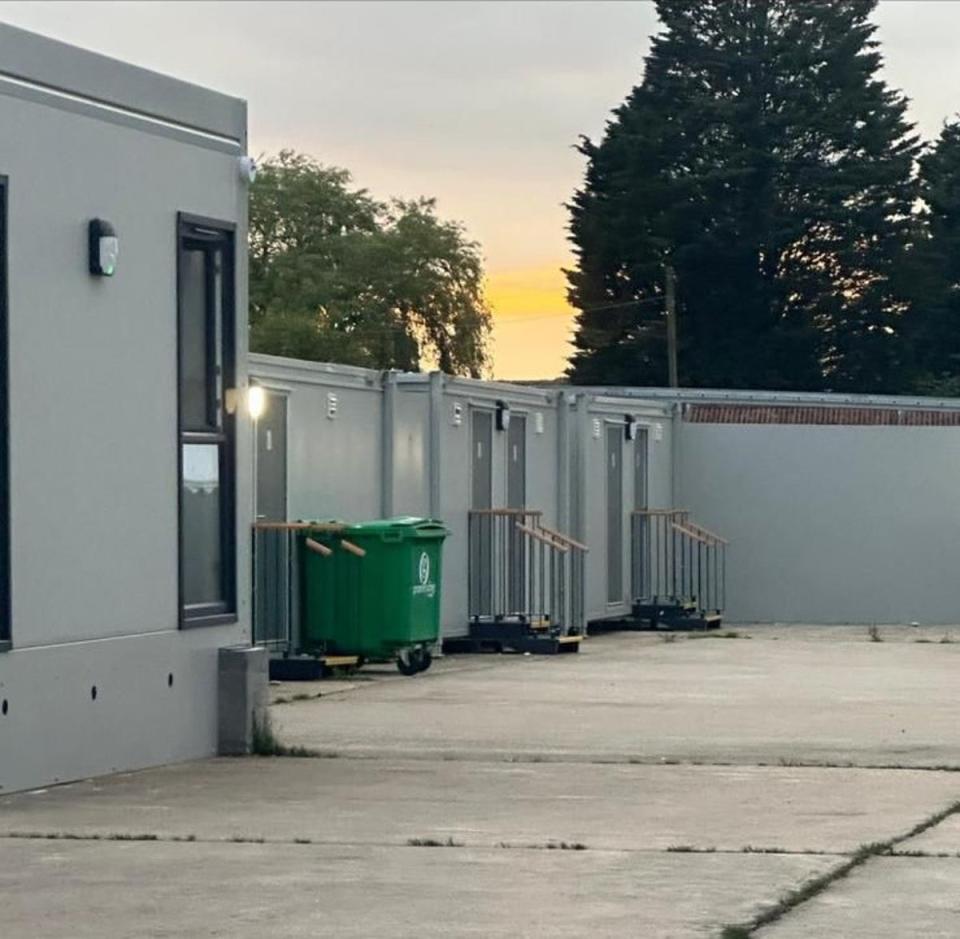
The site’s isolation makes it harder for residents to integrate with the community and when asylum seekers do venture out, they are not always treated well.
One Sudanese man in his twenties told The Independent that last week he was walking outside the site with other residents when a man stopped his car to shout at the group. “He told us: ‘We don’t want you here. We don’t need you here’. Then he said he was going to get a missile and fire it into the camp.”
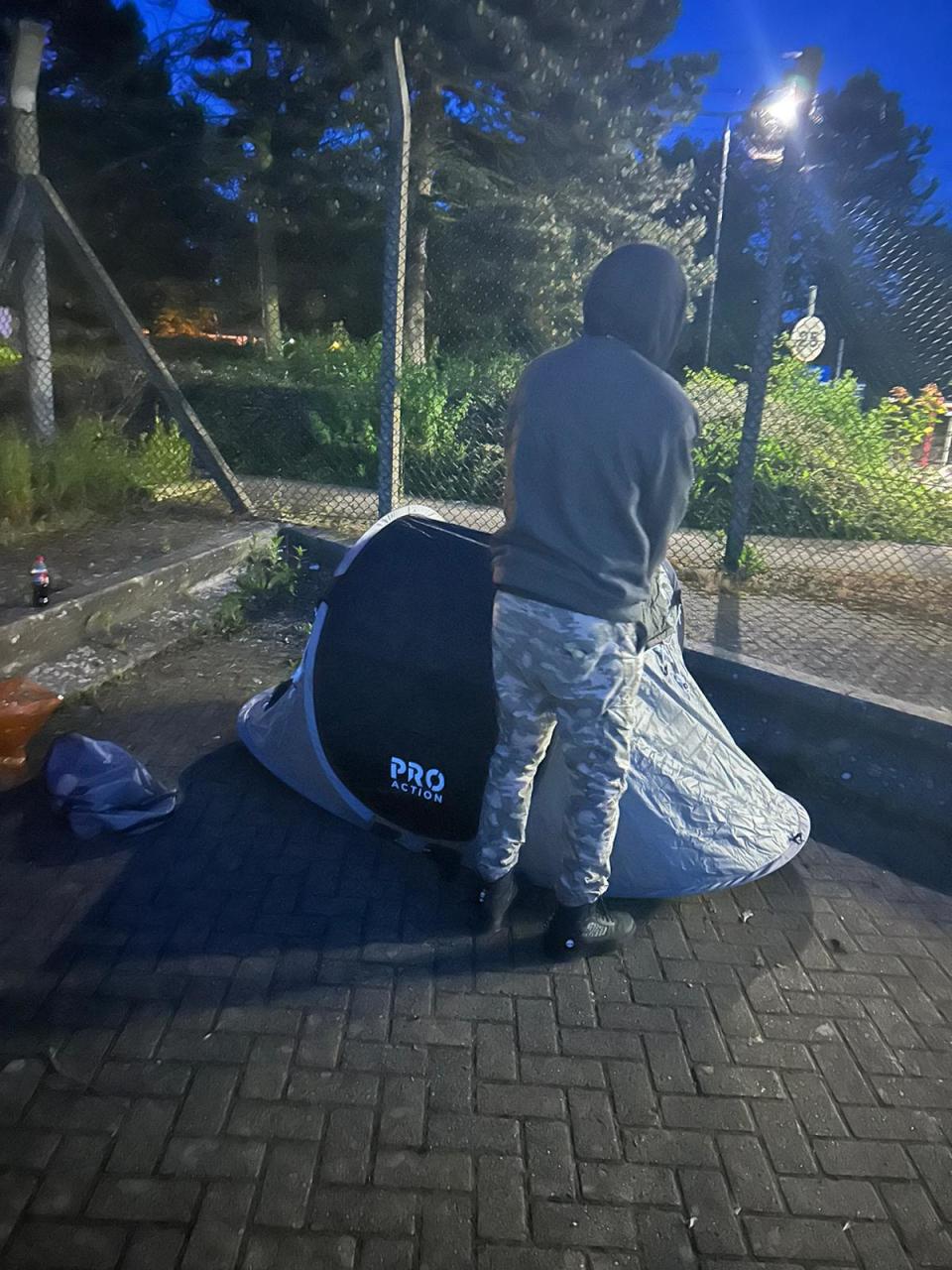
Eric, whose name has been changed to keep him anonymous, said that when he transferred to Wethersfield he was told he was going to another hotel. “We didn’t have enough information about what it was like but we had no choice,” he said.
Eric said he went to the GP to get help with his mental health but the doctor told him Wethersfield was better than the Bibby Stockholm, the barge housing asylum seekers in Portland, Dorset.
Metal barriers are put up around the courtyard when a coach with new arrivals comes in. Amir believes it is to stop residents going up to the new people and telling them what the site is like.
Last week a Sudanese man arrived at Wethersfield and became worried because it reminded him of a prison in which he was detained in Libya. He left the site thinking he would be taken elsewhere and on realising that he would have to sleep on the street he tried to return, but was not allowed back in.
The same day three Kurdish men who had gone on a walk were not allowed to re-enter the site. Charity workers from Care4Calais had to bring emergency tents and sleeping bags so they could be sheltered overnight.
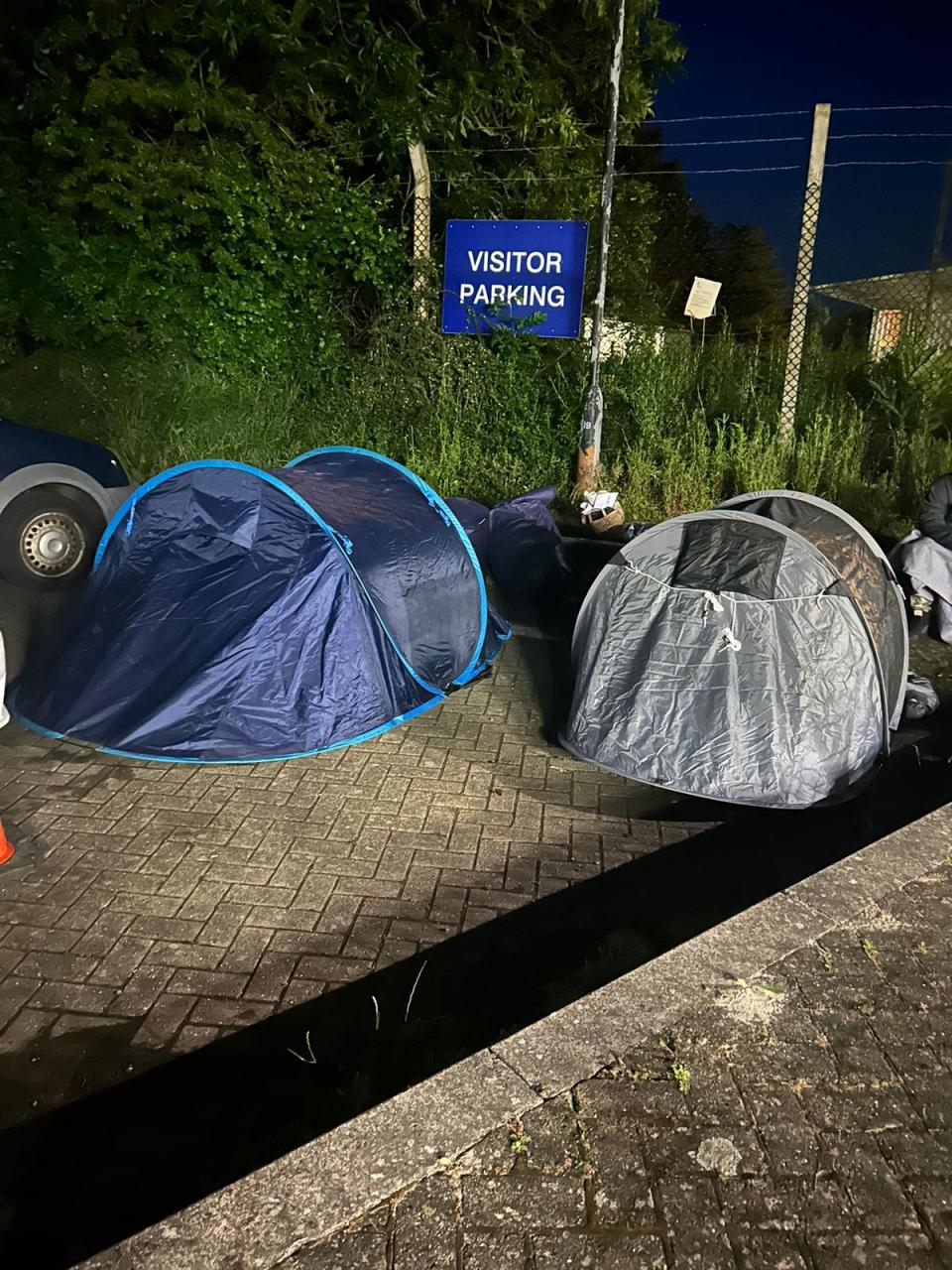
Doctors of the World, a charity which operates a mobile clinic for residents outside Wethersfield, has called for the government to close the site. It said 74 per cent of the people staff see have symptoms of severe psychological distress, with 41 per cent experiencing suicidal thoughts.
Doctors of the World estimated that there were between five and 10 suicide attempts, along with 10 incidents of self-harm, in January 2024 alone – the worst month since the site opened in July 2023.
Multiple concerns about the unsuitability of the site have been raised with the government by MPs, charities and local government officials, including fears that it could be contaminated due to its previous use by the military.
The Home Office has obtained a special development order to continue using the site, but this requires a radiological survey, an unexploded ordinance survey and intrusive ground investigations to be carried out – all of which are ongoing.
The numbers are now capped at 580 – far from the 1,445 people the Home Office had originally predicted would be housed there.
The money spent on the site has already gone wildly over budget, with a cross-party group of MPs saying last week that the Home office had made “unacceptable and avoidable mistakes”.
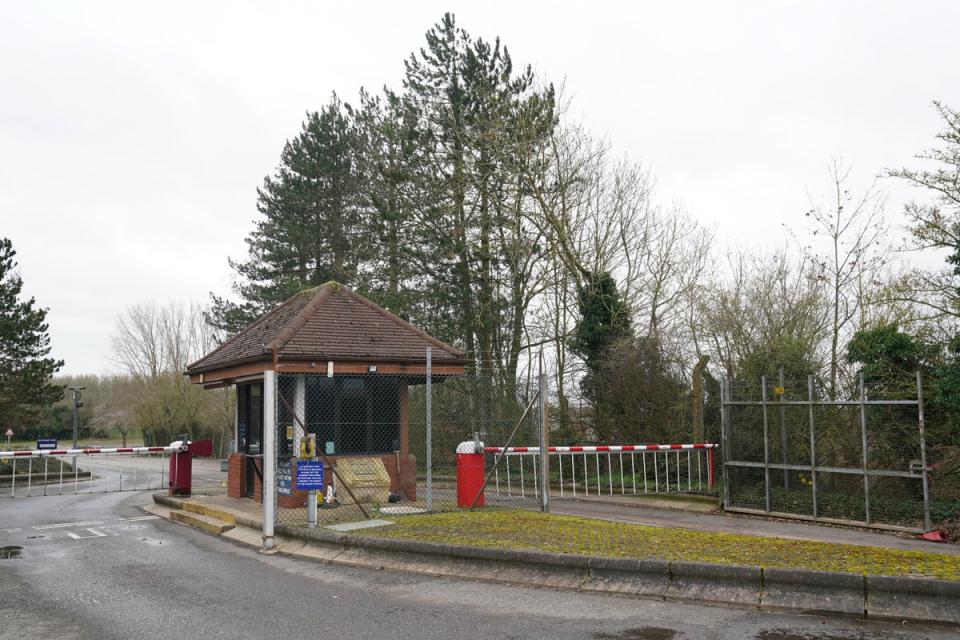
The original estimate for set-up costs was £5m but this has spiralled to £49m, making the site significantly more expensive than hotels. The total amount of money spent on Wethersfield in the financial year 2023-4 was £145.7m, with £338.7m expected to be spent up to 2027.
Labour has said it opposes the use of Wethersfield as asylum seeker accommodation, calling the cost “staggering”.
Steve Smith, CEO of Care4Calais, said: “Anyone with an ounce of humanity would only need to spend a matter of minutes with residents at the camp to reach the conclusion that these quasi-detention centres need to be shut down.
“We have been saying for months that the prison-like conditions at Wethersfield are bad for people’s health and wellbeing, but politicians need to hear people’s stories, listen to them and act. The next government must close these sites and house people seeking asylum in communities.”
A Home Office spokesperson said: “We take the safety and welfare of those at Wethersfield extremely seriously. Welfare officers are on site round the clock and all residents have access to a GP service delivered by a local healthcare provider including mental health support. A 24/7 helpline provided by Migrant Help is available to raise any concerns.”
If you are experiencing feelings of distress, or are struggling to cope, you can speak to the Samaritans, in confidence, on 116 123 (UK and ROI), email jo@samaritans.org, or visit the Samaritans website to find details of your nearest branch. If you are based in the USA, and you or someone you know needs mental health assistance right now, call or text 988, or visit 988lifeline.org to access online chat from the 988 Suicide and Crisis Lifeline. This is a free, confidential crisis hotline that is available to everyone 24 hours a day, seven days a week. If you are in another country, you can go to www.befrienders.org to find a helpline near you.


